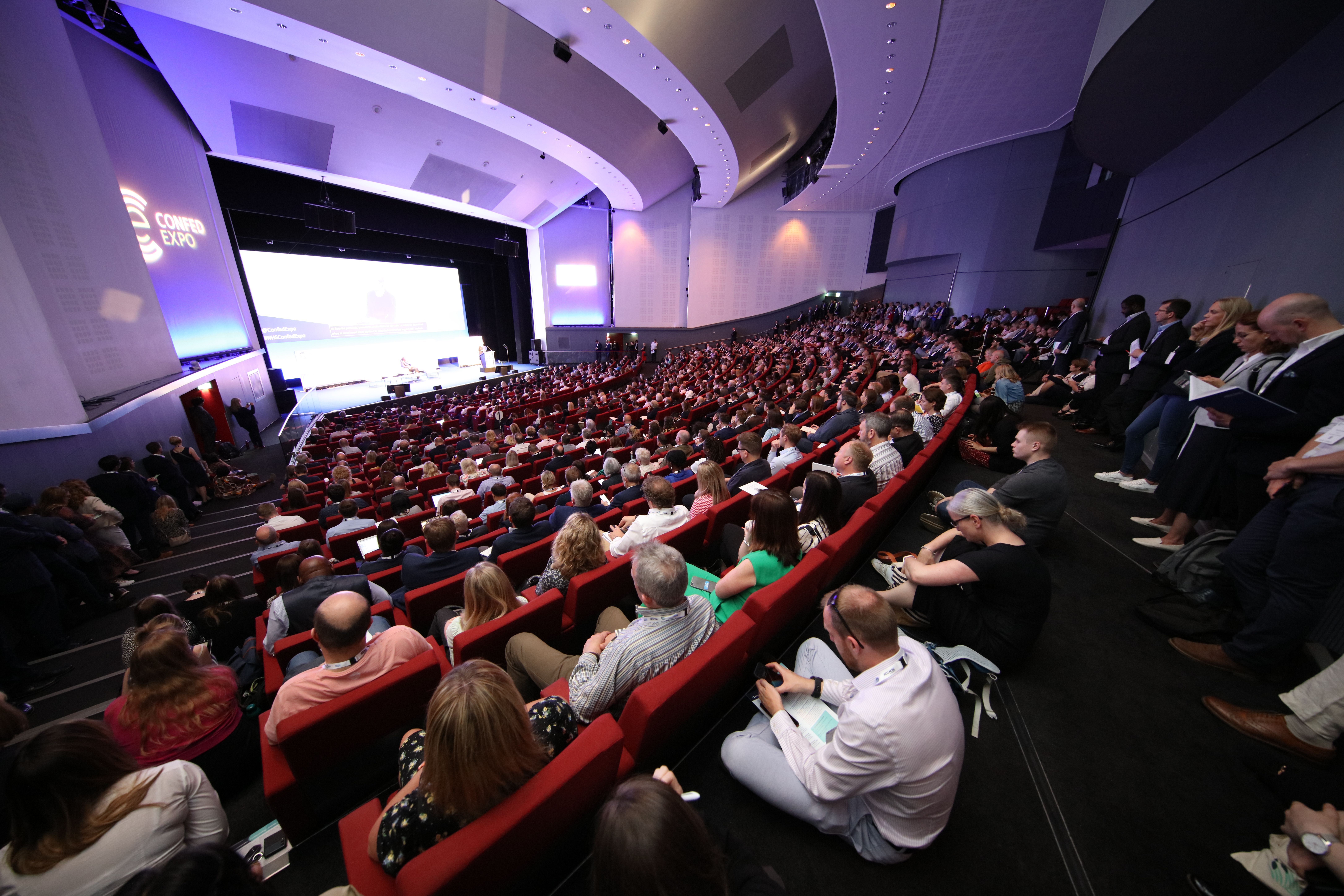NHS ConfedExpo 2024 will have a stage dedicated to high-calibre panels of experts exploring the most important developments and challenges for the NHS.
Purpose
A panel session on the main stage at NHS ConfedExpo is a unique and high-profile communications and engagement opportunity.
All main stage panel sessions must be topical, interesting, inspiring and thought-provoking – ideally, they should be used to unveil/discuss new developments or approaches or ways of tackling current challenges.
Each of the five theme areas has one main stage panel session dedicated to it.
Each main stage panel session needs to reflect the national approach to the subject matter, as well as the practicalities of delivery on the ground, of the most important challenges and opportunities within the conference theme.
Each panel session should:
- Inspire and motive the audience around a specific high-priority topic
- Showcase the views of very senior people across organisations involved in developing or delivering this high-priority work
- Showcase how this high-priority work is making a difference to patients and staff
Format and objectives
Panel stage sessions are 60 minutes in length, and should be set out with sufficient time for audience Q&A – something like the below. The format can be different from this example, so long as there is enough time throughout for engagement.
There is room for a maximum of five panel members including Chair, which should include:
- One national voice from NHS England / NHS Confederation
- At least one person from an external organisation (Charities/Professional bodies/LAs/Private sector (if appropriate)
- At least one person from a frontline NHS organisation / system
- At least one patient or patient advocate
- All panel members should be unique to your session - they shouldn't be speaking in any other main stage session
5 minutes - Chair introduction to key issue of session and panel members
5 minutes - Panel members 1 min each introduce selves
25 minutes - Panel discussion with equal time for each speaker
20 minutes - Audience Q&A
5 minutes - Closing remarks by Chair
About the room
- Purpose-built theatre-style stage near to the keynote auditorium
- Capacity for a seated audience of up to 500
Audience
More than half of attendees at NHS ConfedExpo are Heads of Department or more senior. It is important to engage with the audience and hear what they have to say. There should be at least 20 minutes – one third of the session – dedicated to audience engagement.
- Slido will be available for use in main stage sessions – this software is fully integrated with the NHS ConfedExpo app and allows audience members to submit questions for the panel members.
- Roving, handheld mics will be available, managed by NHS ConfedExpo staff




